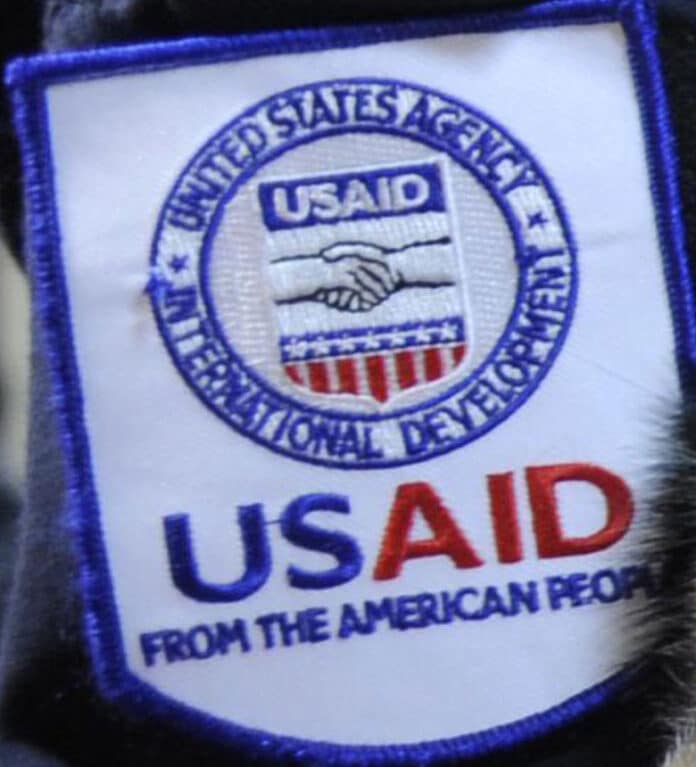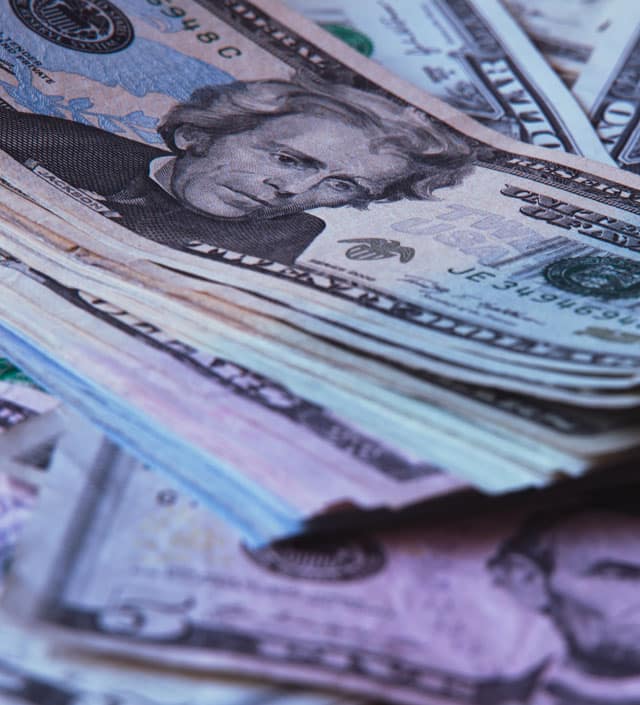At the U.S. Agency for International Development, thousands of workers have been fired or put on administrative leave and many of its projects addressing global issues like health, hunger and education have been halted.
Now, a former Goldman Sachs analyst and son of a private equity billionaire has ambitions to control some of USAID’s roughly $40 billion budget and apply more of a “pro-market” approach to supporting development in other countries.
Benjamin Black, 40, has been nominated by President Donald Trump to run the U.S. International Development Finance Corp., a little-known agency that invests and lends billions each year to companies and projects overseas.
Black, whose father is Leon Black, a co-founder of the private equity firm Apollo Global Management, has said he wants the development finance agency to be able to use money that previously went to USAID for international projects that explicitly benefit American interests.
“If we are going to spend money abroad, let’s do so with an investment-driven model,” Benjamin Black and tech entrepreneur Joe Lonsdale wrote in an essay in January, about two weeks before Trump’s inauguration.
Their essay, which appeared on Lonsdale’s blog, said USAID had experienced “absurd mission drift” and was funneling money into unnecessary projects that promoted gender equity and green energy. Bloomberg reported earlier on the essay. For decades, USAID has delivered humanitarian aid to countries, like maternal health assistance in Zambia and disease surveillance in Cambodia.
But Black argued that the United States should be focused on projects that delivered a clear return for Americans. For example, he wants the development agency to be at the forefront of developing infrastructure and mining projects in Greenland, the ice-covered island that Trump says he wants to control.
Less than two months into Trump’s efforts to overhaul the federal government, it is not clear what will become of USAID’s annual appropriations, which are controlled by Congress. Elon Musk, the world’s richest man and Trump’s cost-cutter in chief, has called USAID a “criminal organization” that should be put out of business.
Arthur Schwartz, a spokesperson for Black, declined to comment for this article. A White House spokesperson did not respond to a request for comment.
Created during Trump’s first presidency, the International Development Finance Corp, generally has had bipartisan support because it is seen as a way for the United States to compete with China in helping to build vital projects in other countries. Most profits from its investments go to the Treasury Department.
The agency has already invested tens of billions of dollars in overseas projects. It has helped fund $49 billion worth of infrastructure and energy projects in 114 countries, mainly in Africa, Latin America and Asia. During the Biden administration, the agency invested in a railroad in Africa and a shipyard in Greece.
But Black’s ambitions for the agency — and his pointed criticism of USAID — mark a shift in American foreign policy, which has traditionally focused not just on promoting American interests but on humanitarian concerns.
“Clearly someone read this essay and said, ‘This guy aligns with our worldview,’” said Michael Kelly, a professor of international law at Creighton University Law School. “For Ben Black, it is all about return on investment.”
In filling government jobs, Trump has often turned to wealthy individuals from finance, real estate and technology. But several people familiar with the process said Black’s nomination had come as something of a surprise given his limited foreign policy and legislative experience.
Black has law and business degrees from Harvard University and a master’s in taxation from New York University School of Law. He was associated with the Council on Foreign Relations for five years and was an associate at Apollo for two years after his stint at Goldman Sachs.
In 2020, he started a small investment firm, Fortinbras Enterprises, which has $122 million in assets, according to a regulatory filing. Black was involved in raising money for a so-called special purpose acquisition company, or SPAC, amid a frenzy of such deals on Wall Street. SPAC sponsors must use the money they raise to buy a company within two years or return it to investors. Black’s SPAC was unable to strike a deal.
Lonsdale, a co-founder of Palantir Technologies, a big data analytical software company, did not return requests for comment. Lonsdale, who also founded the venture firm 8VC and a new college, the University of Austin in Texas, is an adviser to Musk in his federal cost-cutting role and was tied to a pro-Trump super PAC. In a preface to the essay, Lonsdale referred to Black as a “foreign policy wonk.”
The younger Black’s connections to the investment world could also bolster the development agency’s attempts to attract private equity firms, hedge funds and international investors to participate in deals initiated by the agency. Some larger deals are backed by a combination of equity investments and loans from the agency and banks.
Leon Black, 73, who is worth more than $13 billion and is a world-renowned art collector, is a well-known figure on Wall Street. He and Trump have known each other for decades.
On the eve of the inauguration last month, the elder Black attended a candlelight dinner hosted by Trump at the National Building Museum, where ticket prices started at $250,000, according to one attendee.
For the past few years, Leon Black has been dogged by his associations with Jeffrey Epstein, the disgraced financier. Black stepped down as chair of the private equity firm in 2021 because of the controversy over his personal ties to Epstein and the disclosure that he had paid Epstein hefty fees for tax and estate planning. A law firm hired by the conflicts committee of Apollo’s board found that Black had done nothing wrong.
A spokesperson for Leon Black declined to comment.
In announcing Benjamin Black’s nomination in a Truth Social post on Jan. 31, Trump wrote: “Ben will use his financial acumen and broad deal-making expertise to ensure that our Investments around the World benefit our Citizens, and strengthen our Country.”
Black will have to lobby Congress to reauthorize spending for the international development finance agency, which is seeking to double the total dollar value of the projects it can finance to $120 billion, a proposal that was under consideration during the Biden administration. Any significant change in the agency’s mission requires approval by Congress.
One of its more notable projects during the Biden administration was providing a $553 million loan to a railroad project in Angola. In 2023, the agency lent $125 million to a shipyard near Athens, Greece, to allow it to transport natural gas around Europe, in a bid to move Europe away from its dependence on Russian oil.
Under the first Trump administration, the agency worked with Trump’s elder daughter, Ivanka, to push for projects aimed at lending to female-owned businesses. The agency extended a $92 million loan to help banks in Honduras lend to small businesses.
c.2025 The New York Times Company. This article originally appeared in The New York Times.







